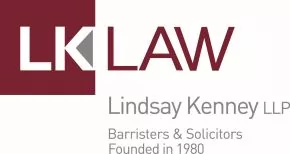- with Senior Company Executives, HR and Inhouse Counsel
- with readers working within the Banking & Credit, Healthcare and Technology industries
This case demonstrates the importance of getting legal advice and getting planning done when a parent decides to transfer a property to a child. It is also a good demonstration of the fundamentals of how the courts in Canada work through the governing law set out in Pecore v. Pecore, 2007 SCC 17. Pecore v. Pecore is a Supreme Court of Canada case that considers, amongst other things, when a transfer is a gift. There are three elements required:
- the transferer's intention to make a gift;
- acceptance of the gift by the transferee; and
- sufficient act of transfer.
Below is a simplified description of the essential facts in Balkisson v. Sandy, 2025 ONSC 856
- Veronica (the Mother) sold a property, and from those the net sale proceeds, she told her two sons, Stephen and Ricky, that they would receive between $400,000.00- $420,000.00. She put language to this effect in a handwritten Will done at that time.
- There were discussions and text message exchanges with Stephen about providing $420,000.00 for him to buy a home.
- The discussion went through various formulations and various texts, with a major focus of it being that Stephen would buy the property for himself and for his sister Heaven, with her portion held in trust.
- Heaven was under 18 years of age and had a young child so the general discussions within the family were thatthis would be the best way to look after teenage mother Heaven and Stephen would help to make that happen.
- Veronica provided Stephen $420,000.00 and the property was purchased.
Unfortunately, at some point after the purchase, relations between Veronica and Stephen's wife became strained. This resulted in Veronica regretting the transferring of money to Stephen, and with Veronica making a new Will where she divided her assets equally amongst her children. She also asked Stephen to transfer the new property to her. This did not go over well with Stephen and so he refused.
The dispute escalated and ended in court. Stephen's position both in examination for discovery (pre-trial process) and at trial that at all times he believed his mother had given him the funds to purchase the new home and that half the value was for himself and half held for his minor age sister Heaven. Veronica, in contrast, was all over the map. She put forth the argument that she had not made a gift and that various text messages that directly contradicted this were not evidence of this gift and she also relied on the Will made later in time as her "proof" that she never intended to give the property to her son. Heaven gave very inconsistent evidence as well. Heaven's evidence was that the home purchased by Stephen was to be held in trust for all of Veronica's children and Veronica herself. The presiding judge chose the evidence given by the most consistent witness; Stephen. An offer of a gift was made, the gift was accepted and the home purchased on that basis of the gift.
Takeaways
From a planning perspective this is a clear example of a person who did not seek legal advice when she should have. Her contradictory positions caused a disruption in the fabric of her family. While a third party can have sympathy for her and even understand her conflicting motivations, from a planning perspective she needed to be consistent. If indeed she intended to give the money to one son (or for that matter another child) she should have done up a formal deed of gift so stating in writing. She should not have transferred the money to her son at a time when she was both giving it to him without and then with conditions.
At Lindsay Kenney if a person in Veronica's position had come to consult with one of our estate planning lawyers we would have helped her to see the risks she was facing and then ask her to decide what was the plan. We would then craft the gifting documentation (assuming she wanted to make the gift) and likely the Will. From a litigation perspective Veronica was frankly her own worst enemy. Having an inconsistent story that did not match the evidence led to her lack of success at trial.
The legal principle is that the rule given in Pecore v. Pecore is the law of Canada and one should be careful when one is contemplating giving assets to anyone.
The non-legal conclusion is that one should always consider seeking legal advice, so that their wishes can be properly documented and disputes can be minimized.
About Mackrell International – Canada - Lindsay Kenney LLP is a full service business law firm with offices in Vancouver and Langley, BC and a member of Mackrell International. Mackrell International – Canada is comprised of four independent law firms in Alberta, British Columbia, Ontario and Quebec. Each firm is regionally based and well-connected in our communities, an advantage shared with our clients. With close relations amongst our Canadian member firms, we are committed to working with clients who have legal needs in multiple jurisdictions within Canada.
This article is intended to be an overview and is for informational purposes only.


